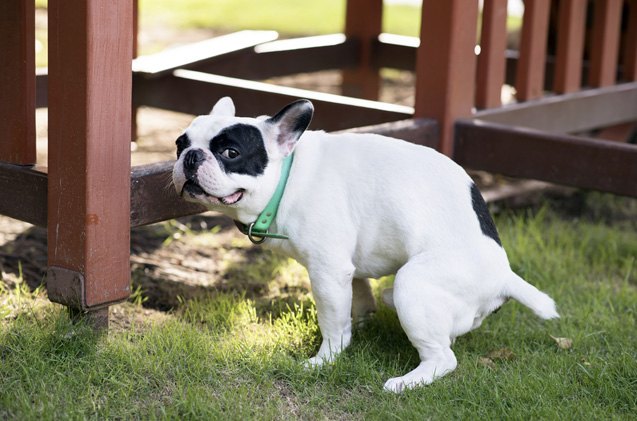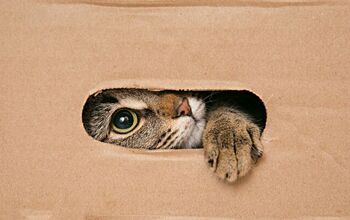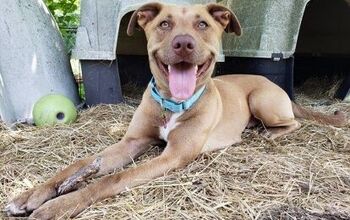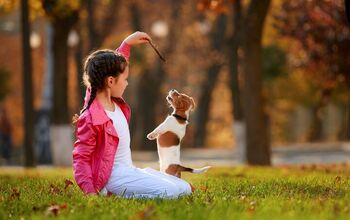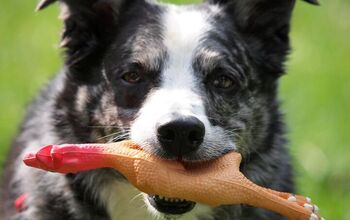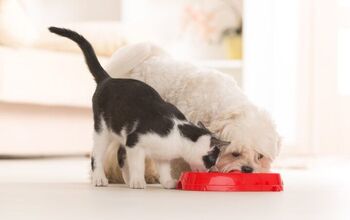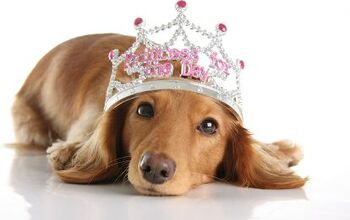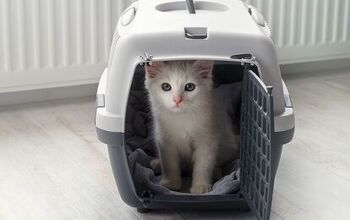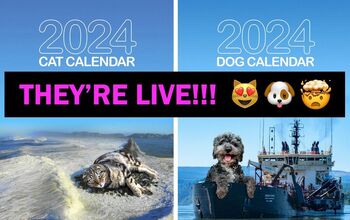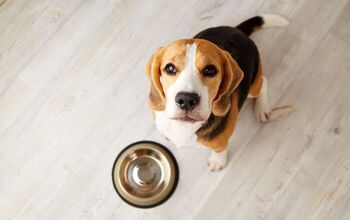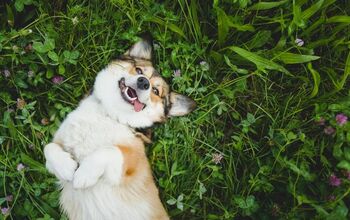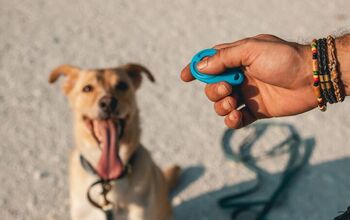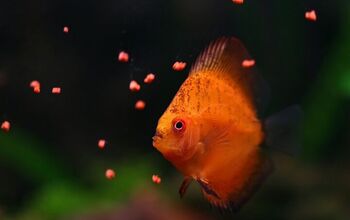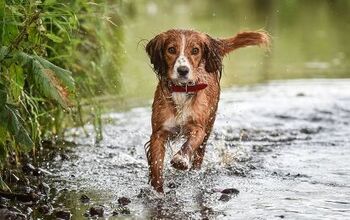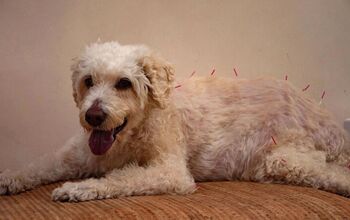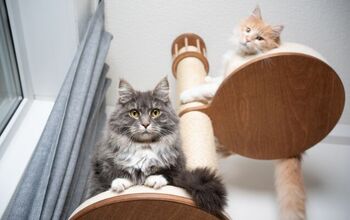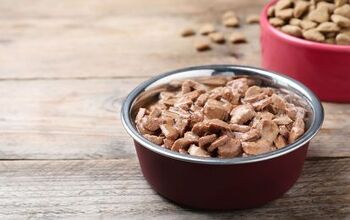5 Reasons Why Dog Poop Doesn’t Make Good Fertilizer

If you happen to have a large and spacious yard where your doggo can “do their business”, or you’re walking along a grassy wooded park when nature calls, you could get the idea to simply leave the poop there. After all, it’s definitely biodegradable, and can surely fertilize the grass and the flowers. Or can it? Sure, we all had the idea that it’d be easier not to poop and scoop, but there are reasons why you just can’t leave your dog’s mess behind. It just isn’t as simple as we might think.
For centuries, manure and compost have been used as powerful boosters for the soil, allowing crops to grow much healthier and stronger. And if you’ve ever fertilized your garden with manure, you may have noticed an unpleasant odor – it’s no surprise, considering that it is made from cow droppings and similar stuff. If manure is so good as a fertilizer, you may be wondering if your dog’s poop could be used for the same thing. Unfortunately, that isn’t the case – dog poop does not make good fertilizer. Cows and doggos are, after all, not the same, and their opposing diets make all the difference. Keep reading to find out why why dog poop doesn’t make good fertilizer.
5 Reason Dog Poop Can’t Be Used for Fertilizer
Perhaps you’ve noticed that that doggo poop you missed to pick up a month before didn’t really dissolve into “manure”. Instead, it looks somewhat unnatural. There are several reasons for this. If you’re looking for a nutrient-rich fertilizer to use in your garden, think twice before you start eyeing up your dog’s latest “gift.” Here are five reasons why dog poop doesn’t make good fertilizer:
#1 It doesn’t contain the right nutrients. A dog’s diet is high in protein which, as it breaks down, becomes very acidic and that’s not good for your plants. After all, doggos are carnivores, right? This makes their diet completely different from the herbivorous cow’s. Cow manure works well as fertilizer for vegetation because it starts out as vegetation. Get it? Cow poop is just munched up grass and hay, in a way. And that is why it can end as manure. The bottom line for dog poop is that if your dog really is creating the perfect poop (and yes, Virginia, there is such a thing as the perfect dog poop), that means they have healthy guts. And a healthy gut means that all the nutrients that were supposed to come out of the food for your dog to absorb and fuel his body with did just that and left the waste behind. The waste is not full of anything but gunk, and that’s not good for your dog or for the earth. In other words, dog poop can do more harm than good for the soil!
Related: An Inside Scoop On Running A Professional Dog Poop Scooping Business
#2 It might be riddled with bacteria. Your dog’s body is full of bacteria at any given moment, but it doesn’t tend to cause a problem unless his immune system becomes weakened. Though it may not make your dog sick, all of that bacteria can be passed in his stools and that’s not something you want to use in your garden. A single gram of dog feces can contain 23 million bacteria.Them being out of your doggo’s body is certainly a good thing, but then they end up in their feces. A lot of the time that’s because your dog’s gut is literally pushing out the nasty and keeping the important, life-giving and nutritionally valued in. Your dog’s waste and the bacteria in it are nothing you want to spread around.
#3 You might get a fine. Even if the signs aren’t posted, your area probably imposes a fine on dog owners who don’t clean up after their dogs. It is unhealthy, irresponsible, and straight out nasty. When your doggo does its business, you should definitely dispose of the waste properly – in a baggie and then into a designated trash can. In some metropolitan areas, fines for not cleaning up after your pooch could be as high as $750. You might not think the rules apply on private property, but you could be wrong. And the fines are not there simply because leaving poop is bad manners. There are other reasons as well, and health hazards are one. If dog poop was a great manure, these fines might not even exist, as you’d be fueling the city’s parks and flowerbeds. But since dog poop can be harmful and unhealthy to the ecosystem, these fines are here to make sure they don’t end up all over the place.
#4 It could contain harmful parasites. Not only does your dog’s feces contain millions of bacteria, but it could also contain parasites. Some of those parasites even have the potential to infect people – examples include parvo virus, hookworms, giardia, roundworms, and trichinosis. Imagine accidentally stepping into a piece of infected dog poop. Then bringing tiny microscopic pieces of that into your home. The health hazard here is enormous.
#5 It takes a long time to break down. The final reason dog waste doesn’t make good fertilizer is that it takes a long time to fully break down. A single pile could be sitting in your yard for an entire year if it isn’t disturbed. If you’re using that as fertilizer, think about how little your plants are NOT getting. If left untouched, dog poop can sit there for a very long time. It will grow moldy, smelly, unhealthy, and eventually hard as a rock. That is nothing like proper fertilizer that gets quickly absorbed into the soil.
Related: 5 Reasons Why You Should Always Pick Up Dog Poop
These five reasons alone should be enough to convince you that your dog’s poop probably isn’t your best option when it comes to fertilizer. Manure is completely common to work with in the garden, and good for the land. But dog poop is a complete opposite! So, what do you do with it then? Keep reading to find out.
Can You Use Dog Poop for Compost?
Just because dog poop doesn’t make good fertilizer, does that mean it can’t be composted either? Sadly, the answer to this question is “yes.” Composting a natural process through which organic waste products are broken down into a nutrient-rich substance that can be used to fertilize plants. As you’ll remember from the last section, dog poop is high in protein which produces a very acidic waste product. Not to mention, it’s the dredge of your dog’s meals and has already had all the nutrients absorbed from it (theoretically, if your dog has good gut health)
The other problem with dog poop is all of the parasites and bacteria it contains – those pathogens need to be exposed to 165°F temperatures for five days to kill them and that is unlikely to happen in your backyard compost heap. There are ways to compost it safely, but you might want to start a separate compost heap to do it, just to be safe.
Whether you use your dog’s poop for compost is a choice you’ll have to make for yourself. It’s your choice, but there are certainly better ways and items to compost than using dog poop. If you’re not composting it though (and be real, odds are you’re not) just make sure you dispose of it in a safe and clean way. Your dog’s pop is an indicator of what his gut looks like, so as long as his gut’s in great shape, that poop should be quick and easy to scoop and lose!
In the end, dog poop is not to be messed with – in any way, shape, or form. If you are repulsed by it, there’s a good reason for that. It belongs in the trash, somewhere far from humans – and the soil too. If you really want to fertilize your gardens and lawns, then definitely purchase the right type of manure or fertilizer and leave all your doubts about doggo poop aside. Oh, and don’t forget to always pick up after your pet! After all, now you know why it’s important.

Kate Barrington is the loving owner of two cats (Bagel and Munchkin) and a noisy herd of guinea pigs. Having grown up with golden retrievers, Kate has a great deal of experience with dogs but labels herself a lover of all pets. Having received a Bachelor's degree in English, Kate has combined her love for pets and her passion for writing to create her own freelance writing business, specializing in the pet niche.
More by Kate Barrington



